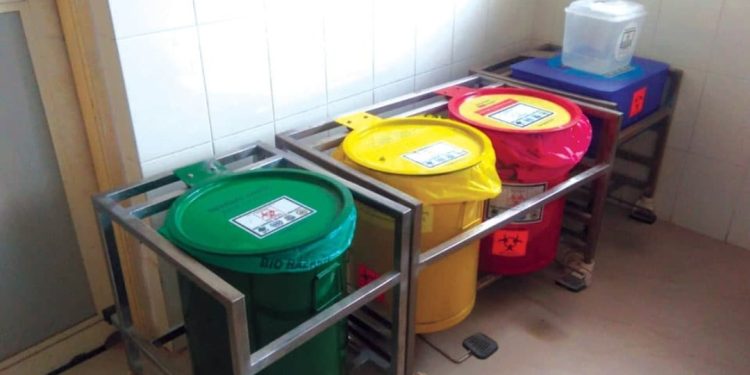Introduction: The Imperative of Responsibility
In the bustling metropolis of Houston, amidst the cutting-edge medical facilities, there lies a crucial, often overlooked aspect of healthcare: medical waste disposal in Houston. This topic, while seemingly esoteric, impacts not just healthcare professionals, but every citizen, and the environment we share. The handling and disposal of biomedical waste is not merely a logistical challenge; it’s a moral imperative, demanding a blend of scientific acumen, ethical considerations, and environmental stewardship.
Biomedical waste, if mishandled, poses significant risks. It can spread infectious diseases, harm those who handle it inadvertently, and wreak havoc on our environment. Thus, the conversation about responsible biomedical waste management is not just a matter of regulatory compliance; it is a dialogue on ethics, public health, and our collective responsibility towards the planet. This article delves into the multifaceted aspects of this topic, offering insights and solutions that align with the highest standards of ethical and environmental care.
I. Understanding Biomedical Waste
Defining and Classifying Biomedical Waste
At its core, biomedical waste encompasses a range of materials. From used syringes to soiled dressings, discarded surgical gloves to samples for diagnosis, each type of waste carries its own risks and requires specific disposal methods. It’s imperative to understand these classifications to manage biomedical waste effectively. The categorization helps in determining the appropriate handling, treatment, and disposal methods, ensuring safety and compliance with regulations.
The Health Risks Involved
The improper disposal of biomedical waste is not just an environmental concern; it poses a direct threat to human health. Pathogens and hazardous substances can easily leach into the environment and contaminate water sources, food chains, and habitats. For healthcare workers, the risk is even more immediate, with injuries from sharps and exposure to infectious materials being a constant concern.
Legal Framework and Compliance
In the United States, biomedical waste is regulated under various federal and state laws. These regulations set forth the guidelines for the generation, segregation, transportation, treatment, and disposal of such waste. Adherence to these legal requirements is crucial, not just for compliance but for ensuring the safety and well-being of those involved in the process and the community at large.
II. Ethical and Environmental Considerations
The Moral Imperative of Safe Disposal
The ethical considerations in medical waste disposal revolve around the principle of ‘do no harm.’ Healthcare providers and waste management personnel have a moral responsibility to ensure that the waste generated does not adversely affect human health or the environment. This responsibility extends to choosing disposal methods that minimize environmental impact, such as incineration or autoclaving, which must be carried out with due consideration to their ecological footprints.
Balancing Public Health with Environmental Sustainability
The challenge lies in striking a balance between safeguarding public health and preserving environmental integrity. Innovative and sustainable waste management solutions are needed to address this challenge. These may include reducing waste generation at the source, recycling materials where possible, and exploring greener disposal technologies.
The Role of Education and Awareness
A crucial aspect of ethical biomedical waste management is education and awareness. Healthcare providers, waste handlers, and the general public must be informed about the risks associated with biomedical waste and the best practices for its disposal. This knowledge empowers individuals and organizations to make informed decisions and fosters a culture of safety and environmental consciousness.
III. Technological Advancements in Biomedical Waste Disposal
Innovations in Disposal Methods
In the quest for safer and more efficient biomedical waste disposal, technology plays a pivotal role. Modern methods like autoclaving, chemical treatment, and advanced incineration have revolutionized how medical waste is treated. These technologies not only neutralize hazardous elements but also do so in an environmentally conscious manner. For instance, advanced incinerators significantly reduce the emission of harmful gases, while autoclaves use steam sterilization, a more eco-friendly approach.
Embracing Digital Solutions
The digital era has also impacted biomedical waste management. Tracking systems using barcodes or RFID technology ensure that waste is handled correctly through every step of the disposal process. These systems enhance accountability, reduce the risk of mishandling, and provide valuable data for optimizing waste management practices.
Sustainable Practices in Waste Reduction
Innovation isn’t just about disposal; it’s also about reducing waste generation. Practices like reusing and recycling, where feasible, are gaining traction. Additionally, the use of biodegradable materials in medical supplies is an emerging trend that promises to significantly reduce the environmental impact of biomedical waste.
IV. The Human Factor: Training and Compliance
Importance of Training for Healthcare Workers
Effective biomedical waste management isn’t just about policies and technologies; it’s equally about the people who implement them. Comprehensive training programs for healthcare workers and waste management staff are essential. These programs should cover aspects like waste segregation, handling protocols, and emergency procedures for spillages or injuries.
Ensuring Compliance and Best Practices
Regular audits and inspections play a crucial role in ensuring compliance with biomedical waste management protocols. Healthcare facilities must adhere to stringent standards, and regular checks help in identifying areas for improvement. Compliance not only aligns with legal requirements but also serves as a benchmark for best practices in the industry.
Collaborative Efforts for Improvement
Collaboration between healthcare facilities, waste disposal companies, and regulatory bodies is crucial for continuous improvement in biomedical waste management. Sharing best practices, learning from case studies, and open communication channels can lead to more effective and innovative waste management strategies.
V. The Global Perspective: International Standards and Collaboration
Learning from Global Best Practices
Biomedical waste management is a global concern, and there is much to learn from international practices. Countries with advanced waste management systems offer valuable insights into efficient and sustainable disposal methods. International collaborations and sharing of knowledge can lead to the development of universal standards and practices.
Adapting to Diverse Geographical Challenges
Different regions face unique challenges in biomedical waste management. Adapting best practices to local conditions, whether it’s the climate, infrastructure, or legal framework, is essential for effective waste disposal. Tailored solutions that consider these local factors can significantly enhance the efficiency of waste management systems.
The Role of International Agencies
International agencies like the World Health Organization (WHO) play a pivotal role in setting standards and guiding countries in effective biomedical waste management. Their recommendations and guidelines serve as a valuable resource for countries looking to improve their waste management systems.
Conclusion: A Collective Responsibility
Biomedical waste handling and disposal is a complex task that intertwines ethical, environmental, and practical considerations. It’s a responsibility that extends beyond healthcare providers to encompass waste handlers, regulatory bodies, and indeed, the entire society. As we advance technologically and expand our understanding of the implications of biomedical waste, it becomes imperative to continually evolve our practices. Through a collective commitment to safety, sustainability, and innovation, we can ensure that biomedical waste is managed in a way that protects both public health and our planet.


 Home
Home









